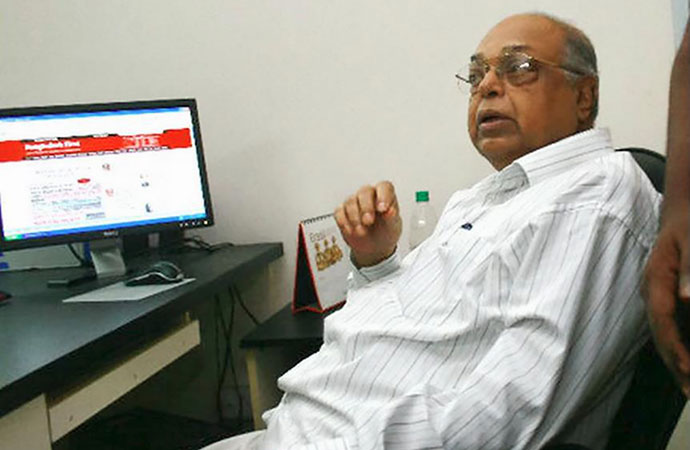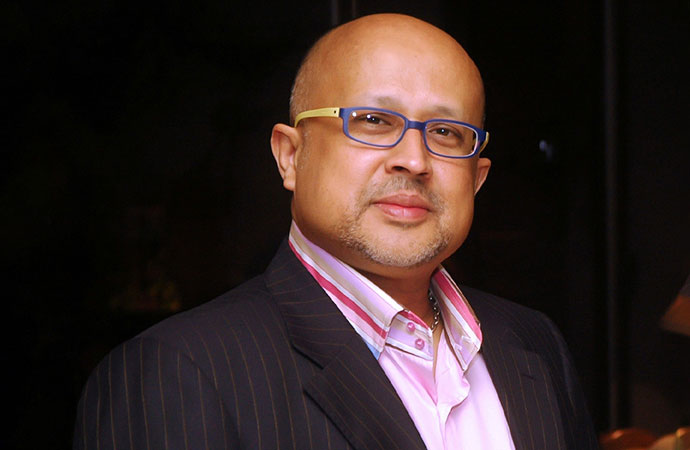Column

Ataus Samad. Photo: Collected
It was 1994.
The boy sat on a wooden bench in front of the Awami League office near the Gulistan area. There were rows of street shops which after the day ended also, playing bedroom to many linked to the pavement market. The boy had come from the far reaches of North Bengal - Domar- hoping to meet a person for a job. He arrived late at night and had no idea that the next day, there was a hartal.
He woke up the next morning and looked around and found all the shops sleeping. He didn't probably know what Dhaka in general and that area in particular slumbered when a full blown hartal was on. He probably managed some buns, bananas and tea and just sat there watching the scenes unfold without any idea what was about to happen. Soon the scenery turned warmer and by midday had turned deadly.
Street bombs
It was February 1994 and the BNP government was in power and AL was doing the usual in Bangladesh politics to unseat them in the prescribed rituals of a regime change.
By then protests processions were already crowding the streets and then bombs or cocktails to be more precise began to land all around. Before the boy knew what was on and where to hide, one burst near his leg. It just tore his right knee apart, shattering the bones underneath and exposing them as they stuck out through the pierced flesh.
He had no pain on his face as he sat in a state of complete shock. He calmly answered questions of curious onlookers who came to gaze at his shattered legs. By then I had already seen dead bodies on the street, both most probably from bombs. I requested the police to take the boy from Domar to the hospital but he hardly looked like he would make it.
The journalist and the number
Ataus Samad bhai and I were on the field covering the event for the BBC. There was no warning that it would turn so violent but it did with cocktail bombs, guns and the gore freely flowing. We had a job to report so we collected the facts , talked to people, recorded voices of the few leaders of the AL we found and the crowd. The police refused to talk. Finally Samad bhai and I met at the Press club to compare notes.
Samad bhai asked me how many dead I was going to mention as we were reporting for two different services of the BBC, he for the World Service and I for the Bangla. He wanted consistency so I said that two certain dead as I had seen the bodies and one possible dead mentioning the boy with the legs gone.
Samad bhai was cautious. "Don't cite any numbers until you hear from me. We must be precise and differ on numbers. I will call you." I nodded and left for home in the rickshaw. I was going to get a call from London around 6.30, my dispatch time. Plenty of time left, I thought. The city wasn't in turmoil but I sensed unease in the air.
Around 5. p.m I got a call from Samad bhai, he was in the hospital. "Afsan, I have interviewed the boy who was seriously injured. He is still alive so we go with 2 confirmed dead and I seriously injured." He even played a clip of the interview. I began to get ready for the London call, writing down the main points.
Around 6 in the evening. I got another call from Samad bhai. "Afsan, make it 3, the boy just died. I am still at the hospital." Accuracy...
The last of the legends
And that's how our news was sent and its precision and objectivity made major waves. Magazines and newspapers covered the dispatches and even the police were happy as no blame was foisted on them. But for me, the most important part was observing the honesty, integrity, commitment and hard work of Samad bhai as he went to such lengths to make sure we got the most accurate possible news. And that's why he is a legend, a legend without a peer in Bangladesh's reporting world.
I am glad, I am old and close to the end of my life let alone my journalist career because I or we may have belonged to a world that has passed on. The media is all about causes and activism now and journalists are news warriors.
In our simpler less complicated world even one more death mattered and we covered it that way. When death becomes so common, numbers don't or can't matter. I let it be. I too have been eclipsed by time. I belonged to another world, far away in time if not space. And I am glad it is so and glad I belonged to a world that is no longer here.

























Leave a Comment
Recent Posts
Religion and Politics: A Toxic ...
At Dhaka University, cafeteria workers have been told not to wear shor ...
Enayetullah Khan joins AsiaNet ...
AsiaNet’s annual board meeting and forum was held in Singapore, ...
In a New York minute
Many leaders back a UN call to address challenges to ..
Defaulted loans at Non-Bank Financial Institutions ( ..
How the late Zubeen Garg embodied cultural affinitie ..